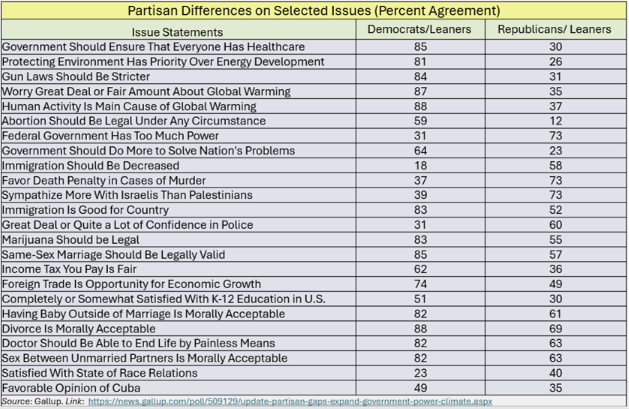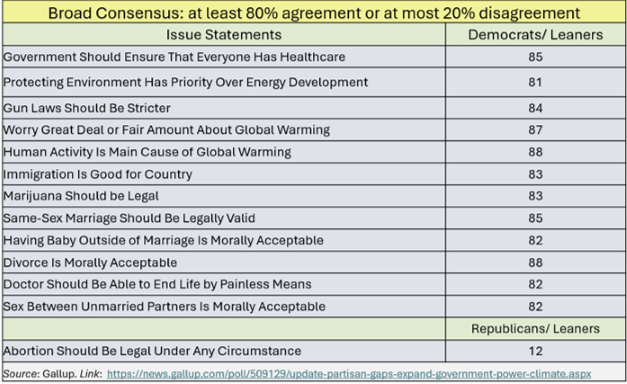I’ve often wondered why there’s such unanimity of political opinion within progressive circles. Do these opinions spring from personal traits like values, intelligence, or temperament (as if there’s a natural progression from being, say, compassionate, smart, and rational to, say, favoring strict rent control)? Maybe a teeny bit, but I think the ripple-effects of social pressure play a larger role.
For example, I find it almost impossible to debate policies with progressives because they tend not to engage dissenting opinions directly but will instead resort to name-calling, e.g. “yeah, yeah, that’s what conservatives (or right-wingers) always say”. Simply showing an interest in some topics may warrant a label, “you’re obviously a Trump supporter to care whether the FBI is doing its job in protecting Trump”. Being thus labeled has a chilling effect, not only on speech but on thought, because speech triggers and clarifies thought.*
It’s not just that progressives often meet contrary opinions with labels and dismissive contempt. It’s that the process of forming opinions or changing one’s mind is also discouraged. This process includes expressing ambivalence, questioning the given wisdom, exploring alternative explanations or narratives, acknowledging that the Despised Other may have a point, etc. Better not to cross those lines if you want to remain on good terms with progressive friends, family, or co-workers.
This old complaint is by way of introducing the following survey results on partisan differences, US version:
I’m not so interested in the gaps between Democrats and Republicans but with the lack of opinion diversity among Democrats and the range of opinion among Republicans. Check it out:
Over 80% of the Democrats and Democrat leaners agreed on 12 of the 24 issue statements. Republicans and Republican leaners did not reach 80% agreement on any statement and strongly disagreed with just one statement (that abortion should be legal in any circumstance). What that tells me is that Republicans are much less susceptible to groupthink than Democrats.
For the record, I’m a registered Democrat.
—
* There’s also what I call the “slap-down” response to unwelcome speech: a short and rushed counter-point, conveying the clear message that this particular conversation is now over. And then there’s the silent treatment, accompanied by furtive glances among fellow partisans. As noted, I’m a Democrat, though one that loves meaty policy discussions. That would involve talking about pros/cons, costs/benefits, trade-offs, limited resources that have alternative uses, possible unintended consequences, etc. Unfortunately, bringing up these policy considerations often gets me a slap-down or label, as if anything less than full-throttled support for favored policies is a sign of being an Other and not One-of-Us.

